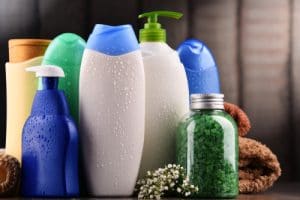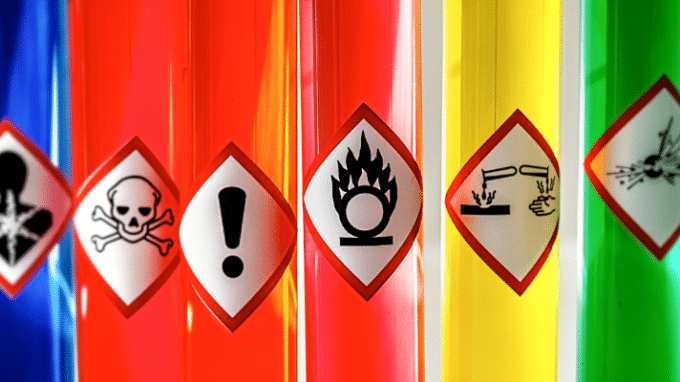When you’re trying to conceive a child, there are multiple factors that can influence your chances of becoming pregnant, including many different toxins.
There are a variety of tools and techniques to try to increase your chances of fertility and improve your health, but many people forget about everyday toxins that can impact fertility. If you want to discover what may be affecting your ability to conceive, there are a few important facts to understand.
Endocrine Disruptors
There are many types of endocrine disruptors that can threaten both men’s and women’s fertility because of their impact on the body and can lead to hormonal imbalance. There needs to be the right balance of both sexual and reproductive hormones like progesterone, testosterone and estrogen. Repeated exposure to endocrine disruptors can cause the hormones to become imbalanced and damage different organs in the body over time. Some chemicals can even come in contact with the placenta, which often leads to birth defects and miscarriages.
Common Endocrine Disruptors Include:
Bisphenol A (BPA) – BPA is a substance most often used as a component to create the plastic containers that house the foods and beverages most individuals regularly consume. Moreover, these substances are also found in tin cans.
Phthalates – These chemicals are added to plastic products for the purpose of giving said products a greater degree of strength and flexibility. That said, phthalates also comprise the chemical makeup of numerous household items such as plastic bags, detergents, soaps, shampoos, hairsprays, shower curtains and several children’s toys.
Parabens – Parabens are chemical additives used to ensure the health and preservation of many cosmetic products. Therefore, these potentially toxic chemicals are often found in the makeup individuals typically use.

Organophosphate flame-retardants (PFRs) – PFRs are usually used in polyurethane foam in the manufacture of several household items like baby products, yoga mats, gym mats and upholstered furniture.
Heavy Metals – Metals such as mercury and lead are frequently found in many of the foods people consume and many of the water reserves individuals drink from and bathe in. These toxins are said to collect in reproductive organs over time. Should a reproductive organ sustain enough of an infiltration, fertility struggles could ensue.
Skin Care Products – Some popular lotions, creams, and other skin care products, used to remedy a variety of skin maladies often contain chemicals called retinols. When used in excess, retinols may not only inhibit conception but also have the potential to damage fetuses.
Hair Dyes – Certain hair coloring products contain various endocrine disruptors that enter a person’s body by seeping through the scalp and possibly have a negative impact on reproductive ability.
Perfumes – Some perfumes and colognes contain endocrine disruptors. Typically, such products are synthetically made and not comprised of scents created from naturally abundant flowers and herbs.
Tobacco – Health professionals and medical researchers declare that this product, along with numerous other chemicals that are expelled in cigarette smoke, have been known to accelerate egg destruction in women of child-bearing age and might induce early onset menopause in women who either partake in the habit or are routinely exposed to secondhand smoke.
Caffeine – Some scientists suggest that the excessive ingestion of foods and beverages containing this chemical stimulant such as coffee, tea, chocolate and cola by women might precipitate miscarriages, premature births or incidents of birth defects in newborn babies.

- Lower levels of testosterone
- Lower sperm counts
- Slow-moving sperm
- Abnormal sperm
In fact, the European Commission lists parabens as a top cause of endocrine disruption. Endocrine disruptors have also been linked to cancer.
It gets worse. Parabens are found in almost all American-made cosmetics and hygiene products, including:
- Soaps
- Moisturizers
- Shaving cream
- Shampoo
- Deodorants
Numerous types of chemicals are sprayed on fruits and vegetables. These pesticides are designed to eradicate the insects and microorganisms that can invade and destroy these edible products before they are shipped to and placed on supermarket shelves. The five most common ones used on fruits and vegetables are endosulfan, permethrin, diazinon, malathion and chlorpyrifos. Some members of the medical community suggest that these substances disrupt the process of hormone signaling, which can potentially interfere with the fertility process.
Studies show that pesticides can negatively affect the quality of sperm in men. Men who ingest a lot of fruits and vegetables that have been sprayed with pesticides have fewer healthy sperm than those who eat only organic produce. Those who eat more than 1 1/2 cups of fruit or vegetables each day have higher levels of pesticides in their system, leading to a lower sperm count.
The consumption of pesticide-tainted fruits and vegetables yielded just as many staggering statistics in another study conducted by Harvard University researchers. These scientists examined 325 women receiving treatment for fertility difficulties and discovered the vast majority of the test subjects ate, on average, in excess of two servings of tainted produce per day. Furthermore, the researchers concluded these women were 18% less likely to conceive and a whopping 23% less likely to carry a child full-term.
It’s important to be aware that fruits and vegetables contain the most pesticides, including strawberries, peppers, apples, pears and spinach. If you’re going to eat nonorganic produce, opt for onions, peas, beans and grapefruit, which have lower amounts of pesticides.
One of the most common everyday toxins that impact fertility is sunscreen. Although you may assume you’re protecting your health by applying sunscreen each day, you can be affecting your fertility if you’re using a product that has many harmful substances. Most sunscreen products contain a long list of chemicals, which are proven to affect the quality of the sperm.
Studies show sunscreen can affect the sperm’s ion balance, even with low use of the product. Try to find products with natural ingredients or make your own sunscreen. You can also wear wide-brimmed hats and clothes that offer more coverage while spending time outdoors instead of relying on sunscreen.
It’s normal to not think about many of the everyday household products you buy, but there are certain chemicals found in many household products that can have a direct effect on your ability to conceive. Substances like BPA, parabens and phthalates can disrupt the endocrine system, which includes the thyroid.
The normal function of the thyroid is important when you are trying to get pregnant because its hormones work to control proper brain development. Thyroid issues affect one in three adults and can be treated with medication, which can increase your ability to have a child. It’s also important to avoid common endocrine disruptors while taking the medication.
The thyroid also needs enough iodine to function properly, making it necessary to incorporate specific foods into your diet, like dairy products and seafood. Iodine supplements can also increase your levels to improve the function of the thyroid.
How to Limit Exposure to Endocrine Disruptors
It is almost impossible to completely avoid contact with these substances. That said, there are steps individuals can employ that might limit their exposure and thereby increase their chances of successfully conceiving:
- storing food and beverages in containers that do not contain BPAs
- avoiding or limiting the use of cosmetics and other aesthetic enhancers with harmful ingredients (natural cosmetics is a good alternative)
- avoiding foods containing high quantities of lead or mercury (especially some types of fish)
- thoroughly washing all fruits and vegetables eaten, or purchasing organic produce
- reducing intake of products rich in caffeine
- to either not start smoking, quit or limit exposure to secondhand smoke while trying to conceive
Becoming aware of the toxins you’re exposing yourself to each day can allow you to discover what chemicals may be affecting your ability to conceive. You can start taking the necessary steps to purchase cleaner products or changing the foods you eat to protect your health and increase your ability to become pregnant.




